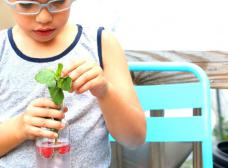What is free sugar costing our kids?
It’s no longer a secret that the vast majority of us are blissfully unaware sugar addicts. Modern conveniences in consumables are great at making life easier in the short term, but what about the long term implications?
A report published in 2009 showcases that food addiction is plausible as “brain pathways that evolved to respond to natural rewards are also activated by addictive drugs. Sugar releases opioids and dopamine and thus might be expected to have addictive potential.”
A further report published in 2013 indicates that sugar is as, if not more, desirable than addictive drugs such as cocaine. This research aims to prove that “sugar and sweetness can induce reward and craving that are comparable in magnitude to those induced by addictive drugs”.
With these two findings it’s hard to believe that as parents we are still largely oblivious to the long term, damaging effects of over consuming sugar-dense foods and beverages.
So a sugar tax maybe introduced, this will certainly help moderate and potentially reduce the average consumption of free sugars (sugar added to food and drink, as well as sugar found naturally in honey, syrups, fruit juices and fruit juice concentrates). But it will take a deeper understanding of what we consume to avoid the top health issues South Africans currently face – obesity, diabetes and heart conditions? All directly resulting from amongst other factors, but largely to sugar-dense diets and little to no exercise.
In a statement released by the World Health Organisation “adults and children need to reduce their daily intake of free sugars to less than 10% of their total energy intake. A further reduction to below 5% or roughly 25 grams (6 teaspoons) per day would provide additional health benefits”.
So what is a safe recommended daily allowance for sugar? Although we all lead different lifestyles and have varying metabolic requirements, the UK’s Scientific Advisory Committee on Nutrition (SACN) have suggested the following:
- Children aged 4 to 6 should have no more than 19g or five teaspoons of free sugars a day
- Children aged 7 to 10 should have no more than 24g or six teaspoons of free sugars a day
- Children aged 11 years and upwards, as well as adults, should have no more than 30g or seven teaspoons of free sugar a day
To illustrate what this means, take a look at some of the popular beverages our children love, and their approximate sugar contents:
- 250ml iced tea = 19g or four teaspoons of free sugar
- 250ml flavoured drinking yoghurt = 26.8 g or five and a half teaspoons of free sugar
- 330ml cola = 35g or seven teaspoons of free sugar
- 330ml ginger beer = 37g or six and a half teaspoons of free sugar
Overcoming an addiction is by no means an easy feat and the same holds true for sugar dependency. Almost all modern convenience consumables contain added free sugar especially children’s favourites such as cereals, beverages, fast foods and treats.
So how do we reduce the excess sugars from our diets?
- Become aware, understand that food is medicine and always try to ensure that that all consumables remain as close as possible to their natural state. If sweetening is required, look at healthier options such as fresh fruit or vegetables.
- Read labels carefully, not all free or added sugars are labelled as sugars. For example: agave nectar, corn sweetener, dextrose, honey, corn syrup, sucrose, fructose, glucose and molasses.
- Limit sugar added beverages, cited as being responsible for the majority of added sugar in US diets. Try naturally flavouring water or using a SodaStream to make fun, healthier drink options. Their syrups also comprise one third of the sugar compared to regular sodas.
- Reduce your family’s super sweet sugar tolerance with a moderated sugar and bolstered wholefood diet. Over time consumables high in sugar will start tasting too sweet as your tolerance returns to its normal natural state.
- Bake instead of buying treats. Homemade treats will no doubt contain less added and highly synthetic sweeteners, and you have the ability to further reduce the sugar content with natural sweeteners like fruits or vegetables. One favourite cupcake recipe calls for swapping out a large portion of the sugar for a glass of white wine, the alcohol cooks out and makes a delicious, moist cupcake.
The key to all healthy living is moderation and a balanced diet. This is not to say indulgent foods high in fat and/or sugar can’t be enjoyed, they can, but just not daily.
Herewith a quick and easy recipe from SodaStream, for more fun recipes, please visit www.sodastream.co.za/recipe/.
Raspberry Coolers for Kids
Ingredients
• 1 bottle SodaStream Zero Cranberry Raspberry
• Fresh organic raspberries
• Mint
Instructions
1. Prepare the SodaStream Zero Cranberry Raspberry (flavoured to your liking)
2. Throw in fresh organic raspberries
3. Garnish with mint.
About SodaStream South Africa
SodaStream is the world's leading manufacturer and distributor of Sparkling Water Maker operating in 45 countries and available in more than 70,000 retail stores in five continents around the globe.














0 Comments